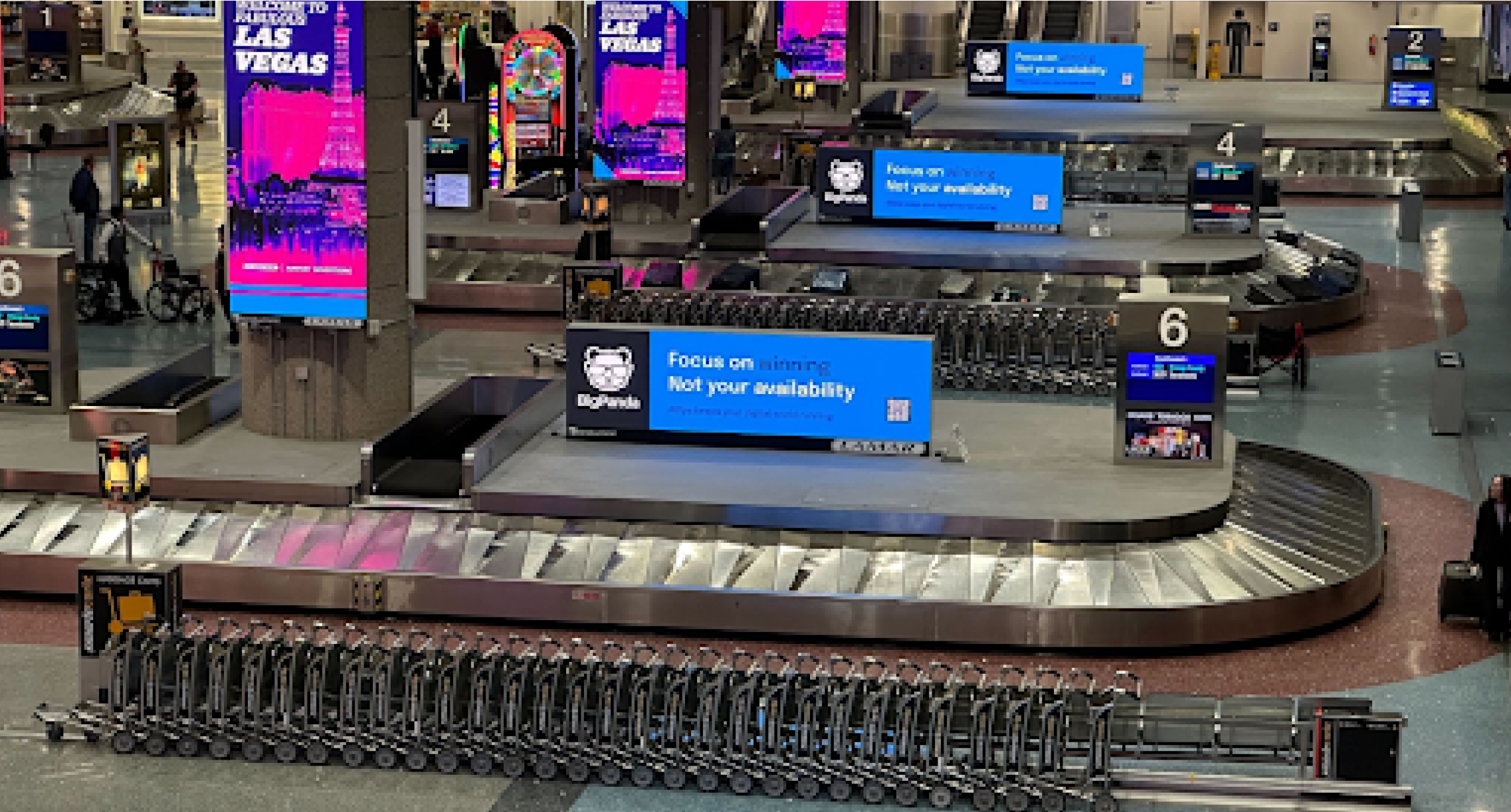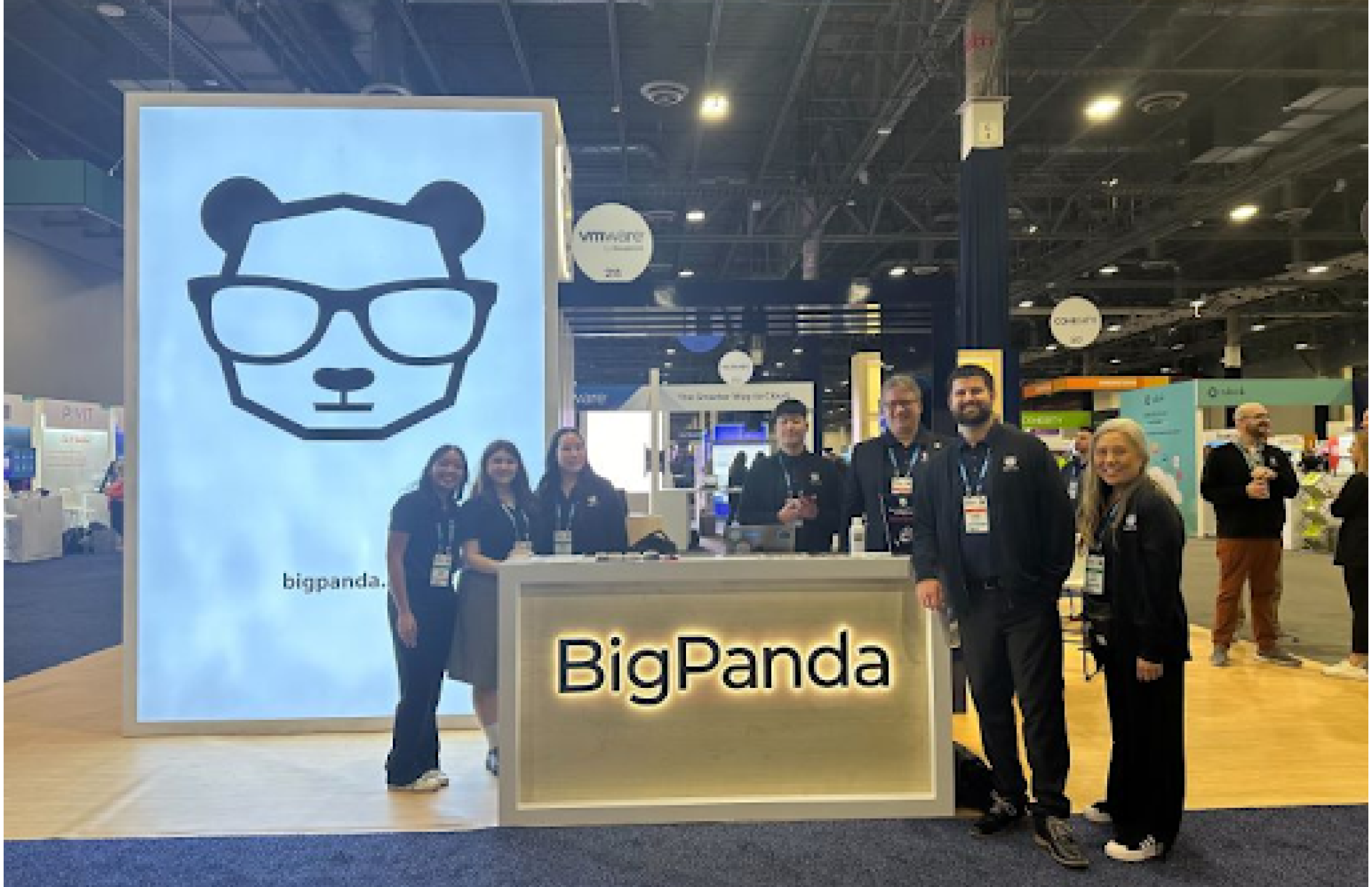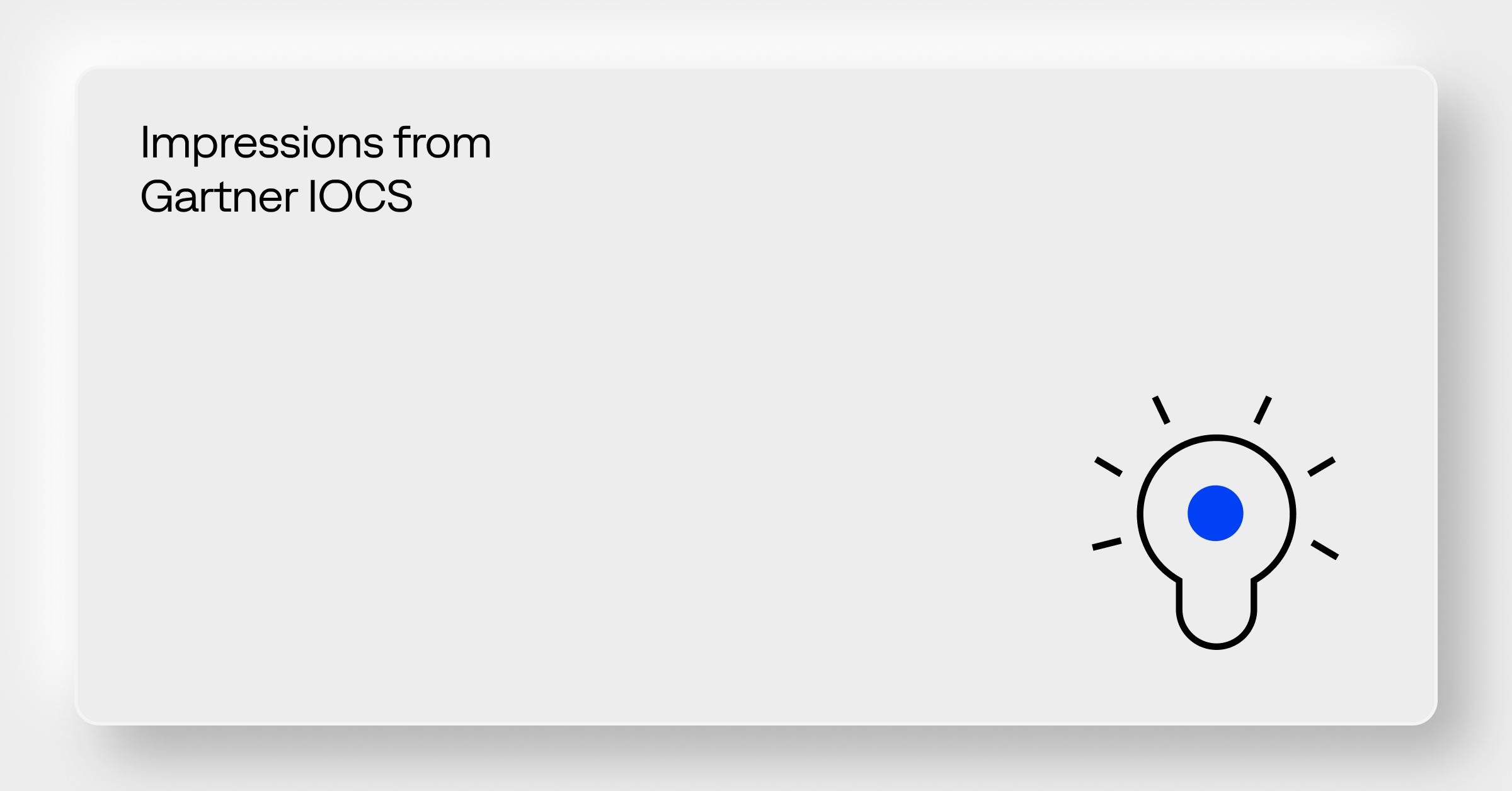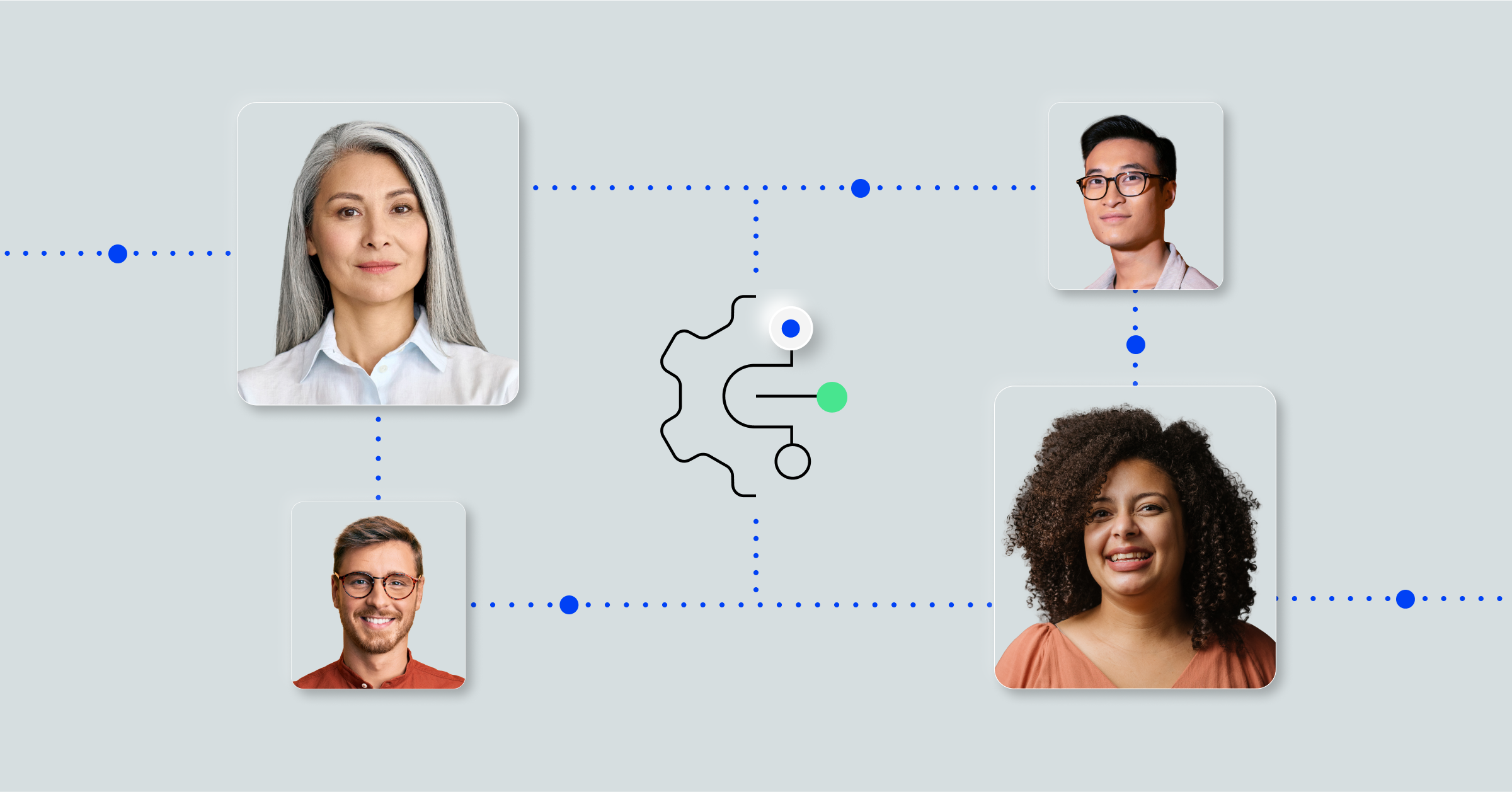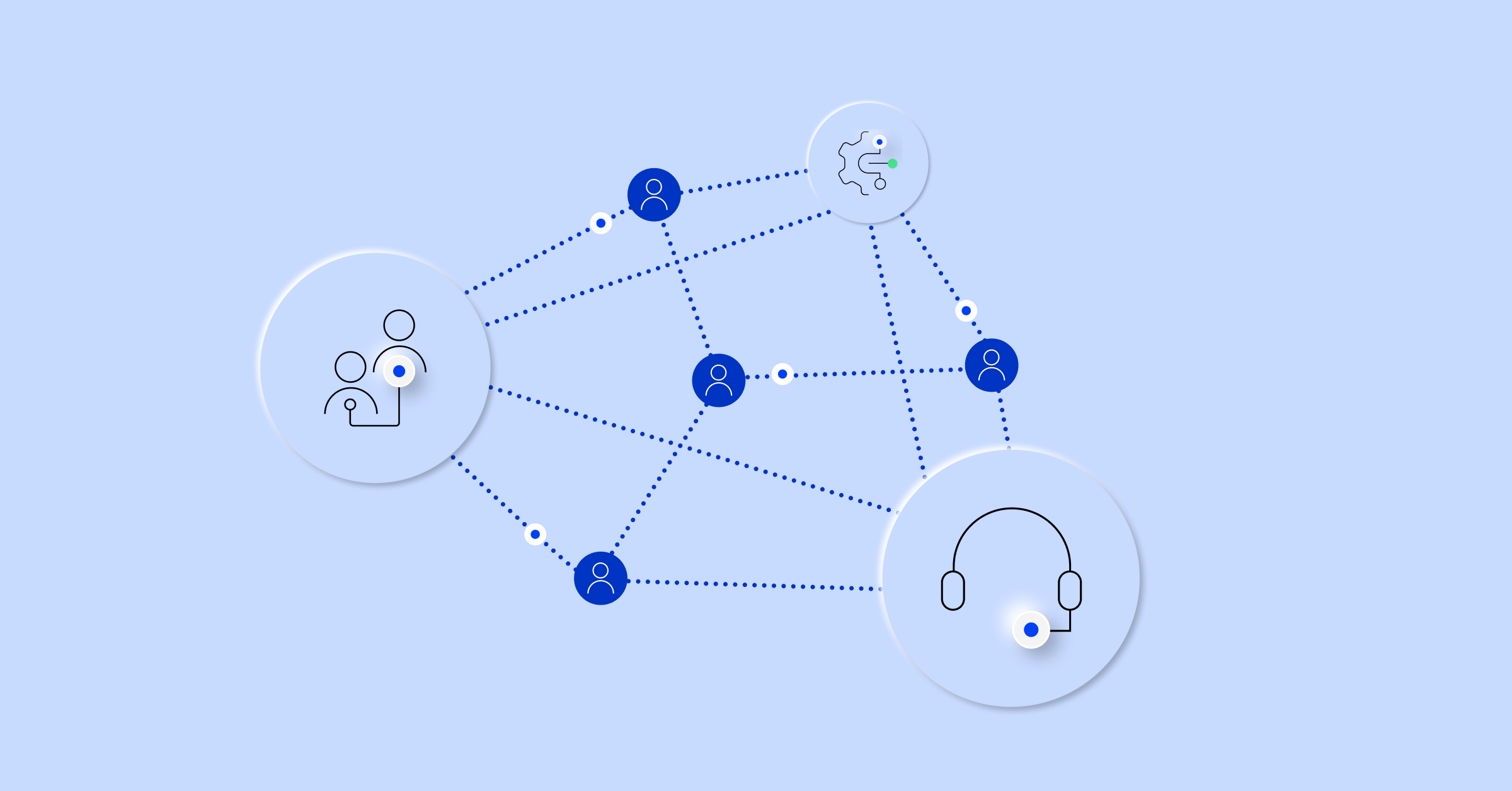Impressions from Gartner IOCS 2023

Gartner’s IT Infrastructure, Operations & Cloud Strategies Conference (IOCS) is an annual event that attracts ITOps, SRE, and DevOps leaders from around the world. As Gartner explains, IOCS “brings the world’s technology leaders together to hear top trends, find objective answers, and explore topic coverage in addition to best practices. Gain the insights and guidance to create an effective pathway to the future and network with your peers.”
This year, the BigPanda team was lucky enough to attend and sponsor this event both in London and Las Vegas, meeting hundreds of IT professionals, including many BigPanda customers. So here’s a recap of some of the most important learnings from the event – and while we’re at it, a big thank you to everyone who stopped by to talk with our team and share your knowledge!
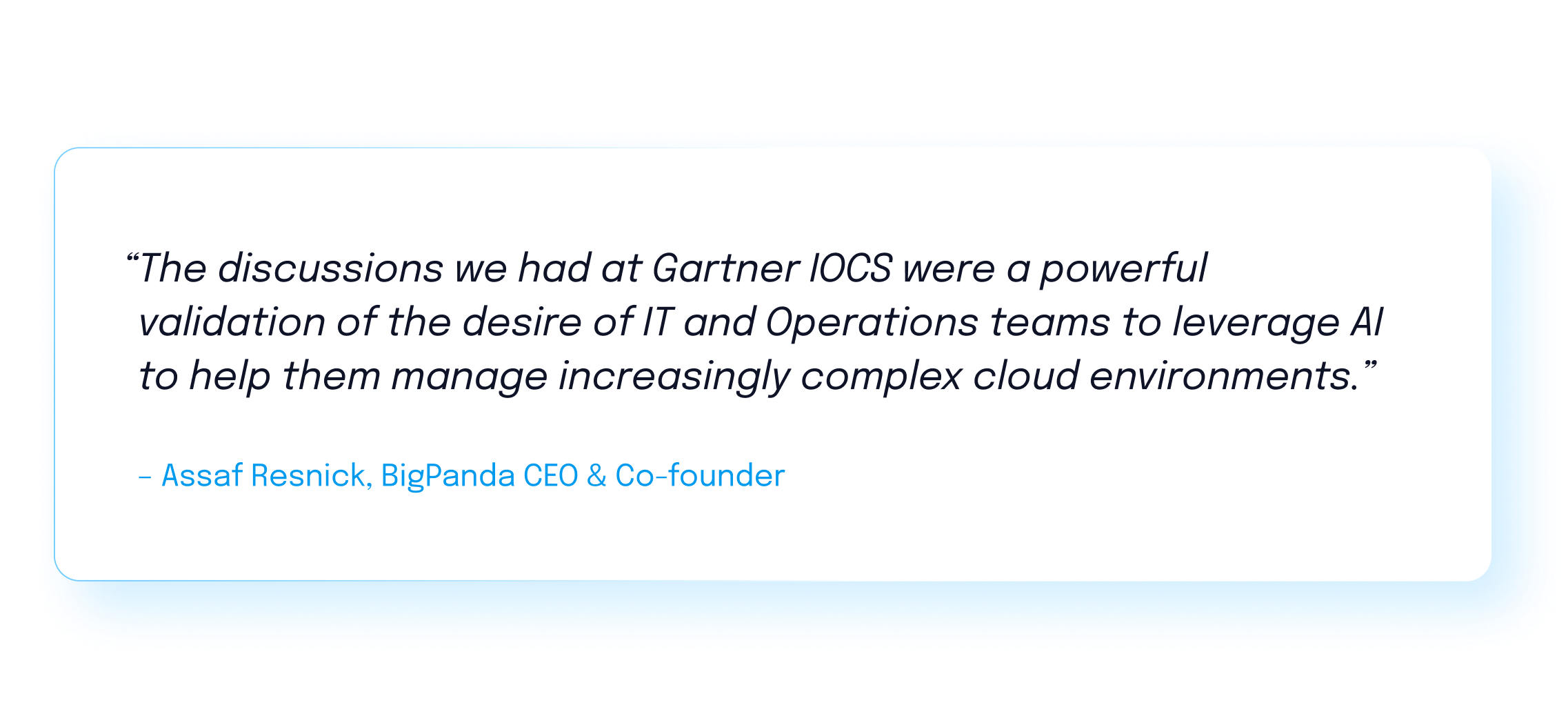
Takeaway #1: Innovation and AI
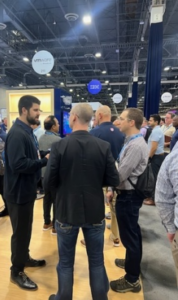 If there is one key takeaway from both the UK and US events it’s this: Generative AI is here, and it’s here to stay. In a keynote at IOCS North America titled “Gartner Opening Keynote: Empowered People and Groundbreaking Innovations Deliver Your Future,” Gartner claimed that 80% of CIOs and tech leaders plan full Generative AI adoption within three years. Gartner teams claimed that, in 2024, Generative AI will likely remain a major topic of interest but with a pragmatic twist. Attendees we spoke with and Gartner analysts report that realizing AI business value will be a key priority throughout 2024, and attendees seemed to agree that AIOps is one of the first ways enterprises will find true business value from AI.
If there is one key takeaway from both the UK and US events it’s this: Generative AI is here, and it’s here to stay. In a keynote at IOCS North America titled “Gartner Opening Keynote: Empowered People and Groundbreaking Innovations Deliver Your Future,” Gartner claimed that 80% of CIOs and tech leaders plan full Generative AI adoption within three years. Gartner teams claimed that, in 2024, Generative AI will likely remain a major topic of interest but with a pragmatic twist. Attendees we spoke with and Gartner analysts report that realizing AI business value will be a key priority throughout 2024, and attendees seemed to agree that AIOps is one of the first ways enterprises will find true business value from AI.
AIOps in production deployments should drive major increases in AI adoption as IT teams discover the efficiency benefits it can deliver. Yet it was clear from the discussions and sessions at IOCS that many ITOps professionals remain in the early stages of deploying AI-powered capabilities. IT leaders we spoke with reported active projects to move past the current “what is GenAI?” stage and into production deployments that drive better business outcomes.
Takeaway #2: The future of AIOps platforms
From the literally hundreds of discussions we had with IT professionals at the events, it was clear that many organizations are still very early in their AIOps platforms journey. Organizations most commonly reported having use cases around anomaly detection and event management/correlation. The business value most frequently discussed with the BigPanda team was the reduction in MTTR (and discovery and investigation times) and the need to scale through technology rather than by adding headcount. While the median BigPanda customer reports an 80% reduction in alert noise within the first eight weeks of deployment, our discussions with attendees at IOCS show that across other AIOps tools, many organizations take months or even years to achieve similar results. A key point that kept coming up in these conversations was the cost of monitoring, how AIOps can help drive improvements in monitoring and observability, and emerging use cases for incident data revealed when observability and monitoring are used effectively.
AI is already viewed by many as a key enabler of team efficiency. Organizations hope to uplevel their team’s skill sets and redirect headcount away from manual, repetitive tasks to more high-value, strategic efforts. Practitioners, too, look for roles where they can build valuable skills instead of responding to a flood of pointless tickets.
A clear takeaway from IOCS is that the use of AI in IT Operations will continue to accelerate. One widely discussed example is the use of Generative AI to automate root cause analysis (RCA). According to presentations from both Gartner analysts and IT leaders, AI will be the future for detecting problems and causality and will be instrumental when automating ITOps workflows.
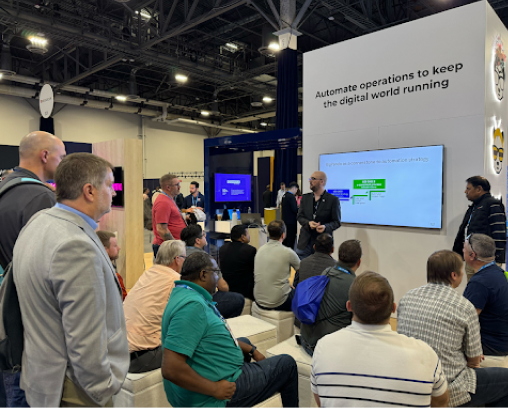
“If we are unable to identify and understand the root cause of an incident, we are at a tremendous disadvantage. With BigPanda, we are now taking advantage of machine learning automation and artificial intelligence to further decrease the mean time to identify an incident, which in turn gives us more time to resolve the operational incident, reducing our MTTR and keeping our services running. With BigPanda, we have reached a service availability number of 99.8%, which is the best on record we have at IHG for our internal systems.”
– Alvin Smith, Vice President, Global Infrastructure and Operations, InterContinental Hotels Group (IHG)
The main concerns regarding AIOps platforms are filtering through the hype and confusion about the offerings, mistrust in AI, and lack of expected value. One observation from the event is that the best way to get around this obstacle is to collaborate with your business and get top-down management support. Gartner analysts explained the importance of avoiding a siloed approach to AIOps and being sure to engage with (and deliver benefits to) your whole organization. As BigPanda recommends, it’s key to understand and define the business value you expect to see before going through the process of selecting and deploying an AIOps platform.
Takeaway #3: Demystifying the change process
Gartner was very focused on discussing frameworks to speak about how to think about constant change and disruption more positively. Whitney Johnson, the CEO & author of Disruptive Advisors at Gartner IOCS North America, said the top three accelerants of growth are taking the right risks, playing to your distinctive strengths, and embracing constraints. With capabilities like GenAI and AIOps, organizations can scale faster and more efficiently, but require change. Those who can adopt these changes can be ahead of the innovation curve and should be better able to focus on the customer experience rather than feature/functionality creation. Organizations need to disrupt themselves in order to reach their full potential, and if you are not innovating, you can rest assured your competition is.
Final thoughts
Gartner IOCS Conference provides a transformative journey for anyone seeking technology innovation. As the event concluded, I found myself inspired by the visionary minds, and witnessing the groundbreaking innovation that was discussed. The conference was a convergence of cutting-edge technologies and a testament to the boundless potential 2024 has to offer. The abundant number of sessions, meetings, and conversations I had is evidence that innovation is not confined to a specific domain but is a possibility for any organization willing to step out of its comfort zone. As I reflect on the event and how it enabled me for 2024, the practical know-how that I can carry with me into 2024 will give me an advantage in understanding the market landscape and what to expect.
If you were able to attend the Gartner IOCS conference, you can view the recorded presentations. We recommend the following:
- Aegon/Transamerica (Jeremy Kulbartz, Tony Penticoff, Ben Sekhon)
- NYSE and IHG (Chuck Adkins, Shripriya Ramanujam, Assaf Resnick)
